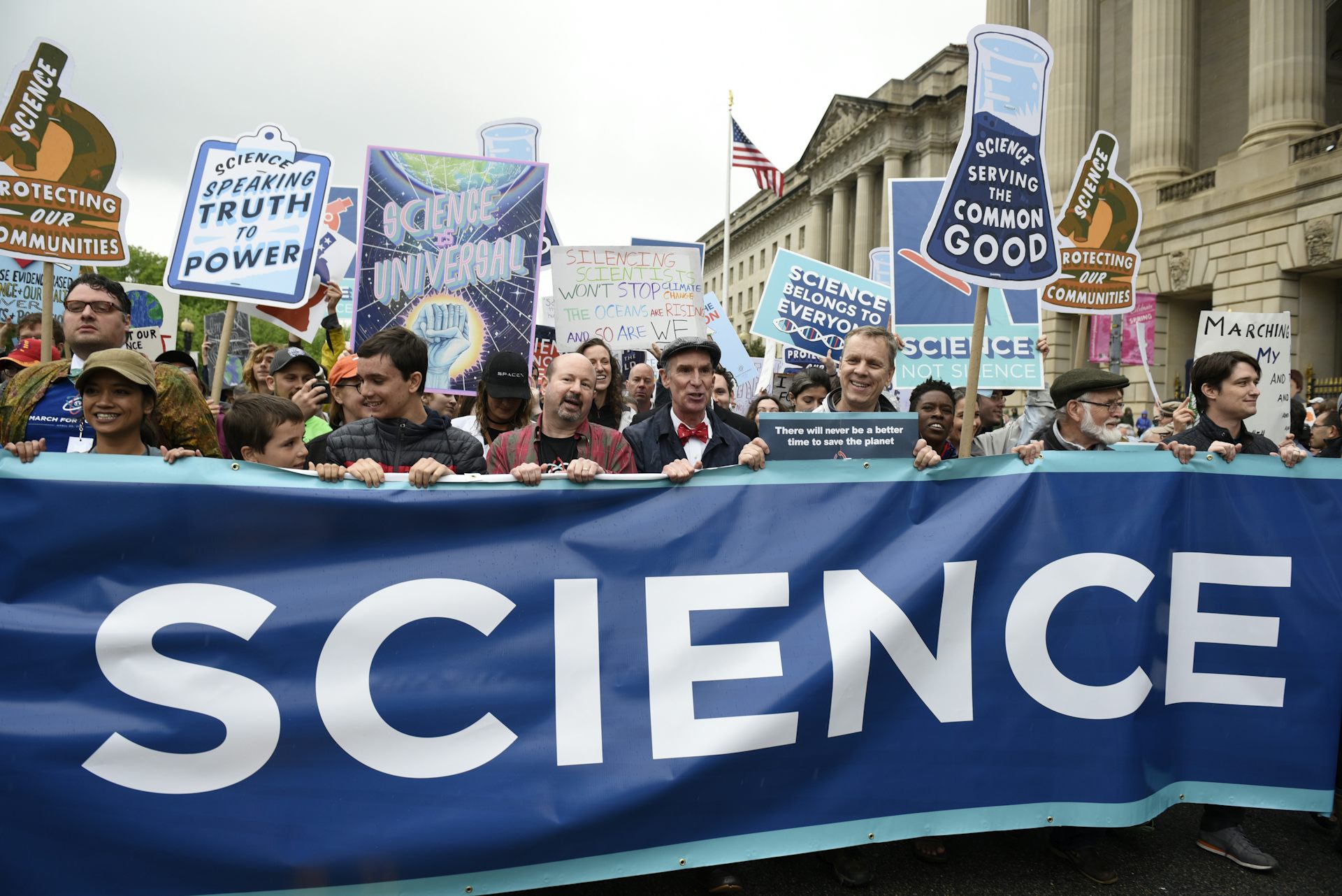Authored by Daniel Nuccio via The Brownstone Institute,
At the start of 2022, both Rachel Fulton Brown, an associate professor of history at the University of Chicago, and Donald J. Boudreaux, an economics professor at George Mason University, fed up with the draconian dictats and bureaucratic overreach of their respective institutions, published letters openly calling out their universities for their intellectual and moral failures in how they responded to the Covid pandemic.
Fulton Brown’s letter to UChicago president, Paul Alivisatos, and provost, Ka Yee C. Lee, lamented her school’s failure to lead the charge against fashionable Covid mitigation policies, while exhorting the institution to change course, celebrate those who exhibited the courage to “stand for SCIENTIFIC INQUIRY over POLITICAL GRANDSTANDING,” and acknowledge they have “students intelligent enough to see through the gaslighting and fear to the real questions we should be asking about what it means to be a great school.”
Boudreaux’s memo to GMU president, Gregory Washington, highlighted the intellectual bankruptcy and logical inconsistencies of GMU’s then newly announced booster mandate, specifically addressing GMU’s failure to acknowledge natural immunity, the fact that Covid vaccination does not stop the spread of the virus, and that members of the GMU community still freely interacted with the unvaccinated and unboosted off-campus.
By the time Fulton Brown and Boudreaux released their respective letters, both the University of Chicago and George Mason University had been operating with the standard suite of online classes, social restrictions, mask mandates, and vaccine requirements for nearly two years. Both schools justified their policies as being guided by science.
Teaching in the Pandemic Era: masked lectures under hot lights in empty auditoriums
In separate phone interviews, Fulton Brown and Boudreaux related some of their personal experiences teaching under these policies, and how they sometimes found themselves butting heads with administrators at their respective institutions.
At the University of Chicago, Fulton Brown, upon agreeing to teach in-person one semester, initially did so maskless. She was skeptical of the school’s mask policy to begin with. She found something cultish about the practice. She also found it difficult to effectively communicate in one when teaching in a “giant lecture hall” containing approximately eight people in an otherwise empty building.
Furthermore, students generally found it difficult to understand her when she lectured in a mask in that setting.
As one student, Declan Hurley, personally attested in an op-ed for one of UChicago’s student newspapers, The Chicago Thinker, this was especially true for those who were hearing-impaired.
Fulton Brown saw nothing dangerous about what she was doing. For practical reasons, it also made sense. But, before long, Fulton Brown was reprimanded. “The University of Chicago has a policy that people could report infractions,” she explained. “Someone saw me from the hallway and reported me and I got emails from both the dean of my division and the college.”
Fulton Brown’s maskless attire got her called into the principal’s virtual office.
At George Mason University, Boudreaux, who taught online from the start of the pandemic through the end of the 2020-2021 school year, returned to in-person teaching in the summer of 2021, at which time the school did not require him to wear a mask.
However, just before the start of the fall semester, GMU announced a mask mandate regardless of vaccination status.
Given that he teaches large auditorium classes at night under hot stage lights for three hours straight, Boudreaux said, “The thought of teaching with a mask on was just unbearable.” Given that he also has high blood pressure, Boudreaux’s physician also thought it would be ill-advised.
Subsequently, Boudreax requested that GMU administrators let him take the risk as a fully vaccinated adult and teach without a mask. His request though was denied.
Once more, Boudreaux found himself teaching online.
Navigating vaccine mandates and vaccine mandate backlash
Like many universities, both UChicago and GMU issued vaccine mandates in 2021.
UChicago provost, Ka Yee C. Lee, and executive vice president, Katie Callow-Wright, claimed, “The University has determined based on expert guidance that widespread COVID-19 vaccination is the best way to contribute to greater immunity, reduce the likelihood of sudden clusters of COVID-19 on campus, minimize the risk imposed by new variants, and help protect members of our community who are at the highest risk of developing serious illness from the virus.”
GMU president, Gregory Washington stated, “Because we will come together as COVID-19 continues to circulate, we have an obligation to maintain a safe environment in which to study, work, and live.”
Both UChicago and GMU also weathered lawsuits over these decrees.
The former was sued by Fulton Brown and another plaintiff with the help of the Health Freedom Defense Fund to secure religious exemptions.
As Jamie Green, a rep from the HFDF, explained in an email, “once we filed, the university was very open to discussions. The university backed down from enforcing the mandate on the plaintiffs.”
However, Green said, UChicago “required a signature to statements with which the plaintiffs did not agree. What was being required was, in essence, compelled speech in order to obtain a religious exemption.”
Among other things, the statements pertained to the purported safety and effectiveness of the vaccines, and the dangers of Covid-19.
Ultimately though, Green stated, “[T]he university allowed the plaintiffs to edit the statement as they wished and sign that.”
At the latter, GMU law professor Todd Zywicki and the New Civil Liberties Alliance successfully challenged GMU’s vaccine requirement, with the university settling before trial, granting him an exemption based on his personal medical history. The settlement, however, did not extend to anyone other than Todd Zywicki.
Both universities also eventually came to issue booster mandates.
UChicago claimed, “[We] rely on consultation from experts from the University of Chicago Medicine, the City, and the Centers for Disease Control (CDC),” to justify their decision.
GMU assured, “Public health experts have advised that vaccines are still the most effective tools to combat COVID-19.”
Both ultimately incited even greater resistance.
Before long, Fulton Brown and Boudreaux released their respective letters.
The editorial team at The Chicago Thinker published a scathing op-ed which garnered national attention as it excoriated the university for forcing students to receive an “experimental vaccination” despite seemingly limited benefits and potential risks to students.
Boudreaux at GMU found himself fed up, saying “I just basically lost it. I’m not boosted. I had no interest in getting boosted. I don’t want to get boosted as a condition for keeping my job.”
Like Fulton Brown and his GMU colleague, Todd Zywicki, Boudreaux was ready to take his university to court. “I was all prepared to be a plaintiff to resist the booster mandate,” he said.
A lawyer with the NCLA had offered to represent him, Boudreaux stated.
However, before Boudreaux’s case could be brought to court, the issue became moot.
A divergence in policy: GMU reluctantly inches closer to normal while UChicago stays the course
The reason Boudreaux’s legal case became moot was because newly elected Virginia governor Glenn Youngkin signed an executive order prohibiting Covid vaccine requirements for state employees.
Shortly thereafter, Virginia attorney general, Jason S. Miyares, issued a non-binding opinion stating, “Public institutions of higher education in Virginia may not require vaccination against Covid-19 as a general condition of students’ enrollment or in-person attendance.”
Although nonbinding, it did effectively nullify the opinion of the previous attorney general, Mark R. Herring, which was supportive of such mandates. Hence it was sufficient to get several state universities in Virginia, including GMU, to rescind vaccine requirements for students.
Whatever GMU officials actually believed about the science backing their mandates and vaccines being “the most effective tools to combat COVID-19”, it would appear the politics of state leadership superseded all else.
UChicago, located in Illinois where Governor J. B. Pritzker issued an executive order in September 2021 requiring faculty and students at universities to be vaccinated for Covid or undergo weekly testing, still maintains its vaccine and booster mandates.
Whether the continuation of the policy is on account of expert guidance or the executive order remains unknown. What UChicago will do if and when this order is dropped remains uncertain.
In response to an email sent to President Paul Alivisatos of the University of Chicago regarding whether the school intended to maintain its vaccine and booster requirements into the Fall of 2022 and beyond, Gerald McSwiggan, the school’s associate director for public affairs, replied on March 8, “The University has made no announcements on COVID-19 policies for the 2022-23 academic year.”
Whatever UChicago decides to do, its reputation as a university of contrarian free thinkers has definitely taken another hit.
As Hurley from The Chicago Thinker had previously declared with a headline, “In Ending Mandates, George Mason University Picks Up UChicago’s Forfeited Crown.”
Universities follow the politics, not the science
The imagery evoked by Hurley’s headline, although not without its appeal, may give too much credit to the administrators at GMU, however.
The trajectories of Covid policies at the University of Chicago and George Mason University are more similar than they are different. Furthermore, the paths they followed seem all too representative of how most universities responded to Covid.
They were quick to shut down. They imposed authoritarian policies on faculty and students when they reopened. They added additional restrictions when fashionable or mandated by local or state political leaders, with few exhibiting the courage to “stand for SCIENTIFIC INQUIRY over POLITICAL GRANDSTANDING,” or acknowledge they have “students intelligent enough to see through the gaslighting and fear to the real questions we should be asking.”
When restrictions were lifted, it was often only because they were nudged (or required) to do so by politicians – or when said politicians lifted their own orders upon realizing their policies might be costing them politically, as was the case with masks at many schools, including UChicago and GMU.
Throughout the pandemic, many universities claimed some moral or intellectual high ground as they wrapped their decrees and their actions in the language of science and safety.
However, in reality, over the past two years many of these universities revealed themselves to be little more than political actors as intellectually bankrupt as they are morally corrupt.










































